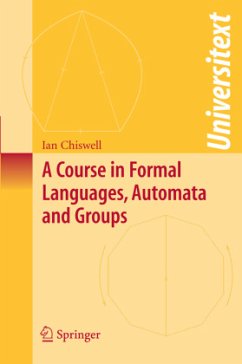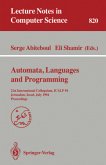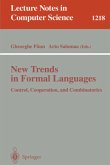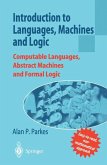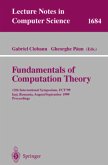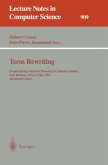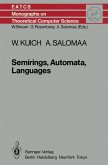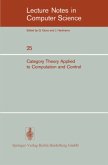The study of formal languages and automata has proved to be a source of much interest and discussion amongst mathematicians in recent times. This book, written by Professor Ian Chiswell, attempts to provide a comprehensive textbook for undergraduate and postgraduate mathematicians with an interest in this developing field. The first three Chapters give a rigorous proof that various notions of recursively enumerable language are equivalent. Chapter Four covers the context-free languages, whereas Chapter Five clarifies the relationship between LR(k) languages and deterministic (context-free languages). Chiswell's book is unique in that it gives the reader a thorough introduction into the connections between group theory and formal languages. This information, contained within the final chapter, includes work on the Anisimov and Muller-Schupp theorems.
This book is based on notes for a master's course given at Queen Mary, University of London, in the 1998/9 session. Such courses in London are quite short, and the course consisted essentially of the material in the ?rst three chapters, together with a two-hour lecture on connections with group theory. Chapter 5 is a considerably expanded version of this. For the course, the main sources were the books by Hopcroft and Ullman ([20]), by Cohen ([4]), and by Epstein et al. ([7]). Some use was also made of a later book by Hopcroft and Ullman ([21]). The ulterior motive in the ?rst three chapters is to give a rigorous proof that various notions of recursively enumerable language are equivalent. Three such notions are considered. These are: generated by a type 0 grammar, recognised by a Turing machine (deterministic or not) and de?ned by means of a Godel ¨ numbering, having de?ned "recursively enumerable" for sets of natural numbers. It is hoped that this has been achieved without too many ar- ments using complicated notation. This is a problem with the entire subject, and it is important to understand the idea of the proof, which is often quite simple. Two particular places that are heavy going are the proof at the end of Chapter 1 that a language recognised by a Turing machine is type 0, and the proof in Chapter 2 that a Turing machine computable function is partial recursive.
This book is based on notes for a master's course given at Queen Mary, University of London, in the 1998/9 session. Such courses in London are quite short, and the course consisted essentially of the material in the ?rst three chapters, together with a two-hour lecture on connections with group theory. Chapter 5 is a considerably expanded version of this. For the course, the main sources were the books by Hopcroft and Ullman ([20]), by Cohen ([4]), and by Epstein et al. ([7]). Some use was also made of a later book by Hopcroft and Ullman ([21]). The ulterior motive in the ?rst three chapters is to give a rigorous proof that various notions of recursively enumerable language are equivalent. Three such notions are considered. These are: generated by a type 0 grammar, recognised by a Turing machine (deterministic or not) and de?ned by means of a Godel ¨ numbering, having de?ned "recursively enumerable" for sets of natural numbers. It is hoped that this has been achieved without too many ar- ments using complicated notation. This is a problem with the entire subject, and it is important to understand the idea of the proof, which is often quite simple. Two particular places that are heavy going are the proof at the end of Chapter 1 that a language recognised by a Turing machine is type 0, and the proof in Chapter 2 that a Turing machine computable function is partial recursive.
From the reviews:
"This short work by Chiswell ... covers formal languages, automata theory, and the word problem in group theory. This content is bound together by the unifying theme of what is known as Church's thesis, which states that any desirable definition of computability should coincide with recursiveness. ... Several appendixes serve as homes for ... distracting proofs of results needed in the main body of the text, or for solutions to selected instances of the abundant exercises. Summing Up: Recommended. Academic readers, upper-division undergraduates through researchers/faculty." (F. E. J. Linton, Choice, Vol. 46 (11), 2009)
"This short work by Chiswell ... covers formal languages, automata theory, and the word problem in group theory. This content is bound together by the unifying theme of what is known as Church's thesis, which states that any desirable definition of computability should coincide with recursiveness. ... Several appendixes serve as homes for ... distracting proofs of results needed in the main body of the text, or for solutions to selected instances of the abundant exercises. Summing Up: Recommended. Academic readers, upper-division undergraduates through researchers/faculty." (F. E. J. Linton, Choice, Vol. 46 (11), 2009)

